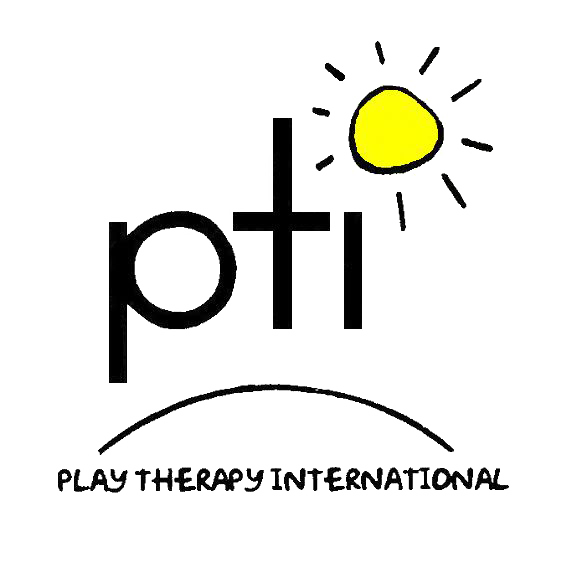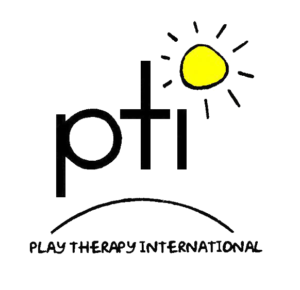II) Clinical Practise:
a) A minimum of 2500 hours of direct clinical practise (face to face therapeutic client contact) in the area of child play therapy in both individual and group process. Please note that these 2500 hours are not just clinical psychology hours in general. These 2500 hours must be in child psychotherapy, play therapy or other forms of therapy. Of these 2500 hours, 500 may include play therapy with adolescents and adults. (Clinical work with adolescents and adults using play therapy methods is seen as legitimate clinical practise). To clarify this requirement for Certification, a professional requires a minimum of 2500 hours of play therapy clinical work.A minimum of 2000 of these hours must be in the process of play therapy with children—of these 2000 hours, up to 500 may be with adolescents and adults. A maximum of 500 hours may involve other forms of clinical work including family play therapy, filial therapy and other methods specifically related to children and play therapy.
b) A minimum of 200 hours of direct clinical supervision of the applicant’s practice of child play therapy. A minimum of 100 of these hours must be in individual supervision. A maximum of 100 hours of group supervision (with no more than 6 in the group) may be allowed. Supervision groups with more than 6 participants in the group do not meet this clinical supervision requirement. Up to 25% of this supervision requirement may include work in play therapy/creative and expressive arts modalities with adolescents and adults. Supervision must be provided by a PTI/ IBEPCT Certified Supervisor or Certified Professor or by a Supervisor approved by PTI. To be recognized for Certification purposes, supervision must include either a “live” component using a one-way mirror system or extensive use of videotapes. These 200 hours must be exclusively in the area of child play therapy.
III) Professional Behaviour:
a) Demonstrated professional and personal readiness for the independent practise of child psychotherapy and play therapy. PTI may request any information which may be necessary to secure satisfactory evidence of this including letters of reference, contact with supervisors of the applicant, etc.
b) All PTI members are required to comply with the ethical standards established by the Board.
c) all members are quality assured through the PTUK Accredited Register accredited by the Professional Standards Authority.
IV) Personal Awareness:
a) It is crucial that therapists applying for Certification have participated in a process of their own inner work/self exploration to become aware of their own issues and the impact these may have on one’s professional work.
V) Interview / Examination / Evaluation Process:
a) Attendance, participation and successful completion of a Certification Interview. Where this is not possible due to distance and time factors, a phone conference call interview may serve in lieu of the in-person interview.
b) Applicants are required to submit a minimum of three unedited videotapes of their therapeutic work. These are to be submitted prior to the Certification Interview. These will be returned to the applicant.
c) Examination: An applicant may be required to complete a written examination in any of the areas of study and knowledge where there appears to be a background which could be considered inadequate.
Anyone interested in applying for Certification in child psychotherapy and play therapy, must first make their request in writing to the PTI. A current resume should be included with this request. A Certification candidate next receives the formal application for Certification. Upon submission of the application, the candidate for Certification will be notified of any outstanding requirements. This is one of the reasons that applicants for Certification are encouraged to apply as soon as they are interested. When their application is received they will receive formal indication of what requirements, if any, must be fulfilled prior to proceeding to the Certification Interview stage. Otherwise, someone may be wasting their time taking courses they do not need or, worse, not obtaining the proper training that is required. Upon successful completion of the Certification process, a Certificate will be provided by PTI.
VI) Continuing Education
After a professional reaches the stage where they are granted Certification status, they must participate in ongoing training in order to maintain this status. There are several options available for completing continuing education requirements to maintain Certification Status: PTI Accredited Training—Certified Child Psychotherapists and Play Therapists (CPT) must complete a minimum of 48 hours of accredited continuing education specifically in the area of child psychotherapy and play therapy every 3 years in order to maintain their Certification status. Of these 48 hours, 30 must be in play therapy and children’s expressive therapies. The remaining 18 may be in areas specifically related to play therapy such as filial therapy, adolescent/adult expressive therapies. Only programs noted as PTI accredited or pre-approved programs are eligible for inclusion in a professional’s continuing education. If a Certified Therapist attends a program that is PTI accredited they automatically know it will count toward continuing education credit.
PTI Non-Accredited Training—If a program is not noted to be PTI accredited, it may (not definitely, but may) be allowed to count toward continuing education credit for PTI hours. In this case, in your own best interest, pre-approval in writing is recommended. Requests must be made at least 60 days in advance of the program and it is best to submit written requests as far in advance as possible.
Professionals also have other options to complete their continuing education requirements.
Teaching—Any PTI accredited teaching efforts a professional is involved in receive a portion of continuing education credit. For each six hours of courses, workshops or programs taught, a Certified Therapist receives credit for one continuing education hour for their own credit. Publishing—for each six pages of professional play therapy material published in legitimate and PTI recognized sources, one continuing education hour is credited.
In other words, if a professional teaches PTI accredited workshops or courses in the amount of 288 hours or publishes a 288-page book or articles of that number of pages over a three year period (or some combination of teaching/publishing/workshop attendance) in legitimate and PTI recognized sources, they would completely fulfill their continuing education requirement for those three years. It is recognized by PTI that there is great learning potential arising from one’s own teaching and publishing efforts and continuing education credit is given for these. Thus, a professional may fulfill continuing education requirements through workshop attendance at PTI accredited programs or non-PTI programs that are pre-approved in writing, or they may supplement or completely fulfill their continuing education hours through both workshop leading/teaching and publishing in PTI recognized and legitimate sources.
If you are interested in applying for Certification in child psychotherapy and play therapy please forward your request in writing to the PTI. A current resume should be included with this request.
You will next receive the formal application for Certification.
Upon receipt of the application, the candidate for Certification will be notified of any outstanding requirements.
Upon successful completion of the certification process, a certificate will be provided by PTI. Successful candidates will be listed on the Register of Play and Creative Arts Therapists, which is accredited by the Professional Standards Authority (www.playtherapyregister.org.uk).
** If you are interested in applying for Certification, please contact The Certification Administrator, PTI Headquarters The Coach House, Belmont Road, Uckfield TN22 1BP, England who will process your application. On satisfactory completion of the process your application will be forwarded to PTI for certification. Contact us at contact@ptiworldwide.org for up-to-date fees.


